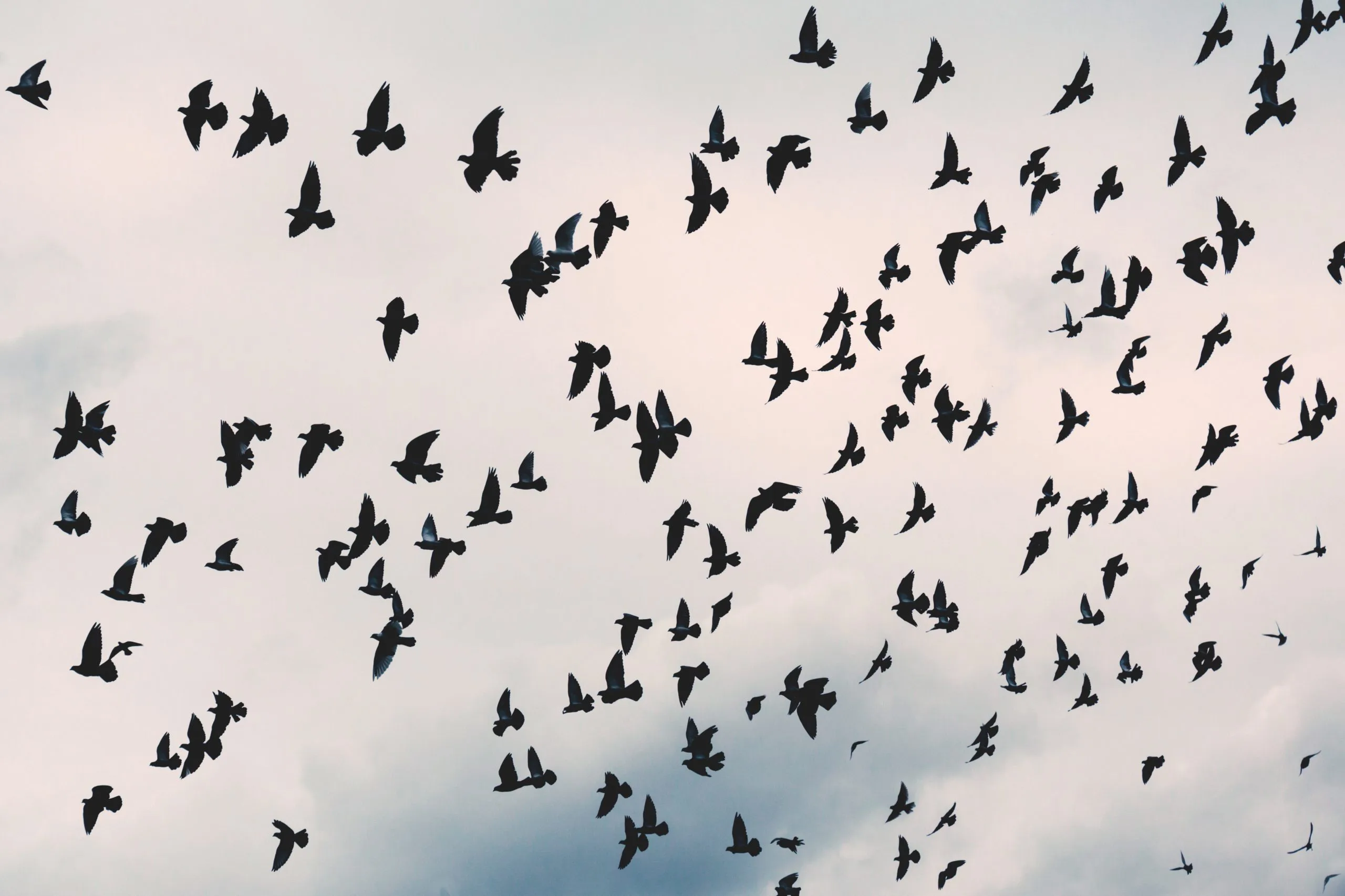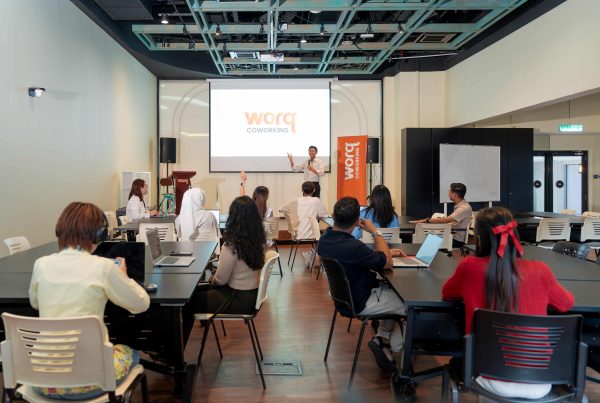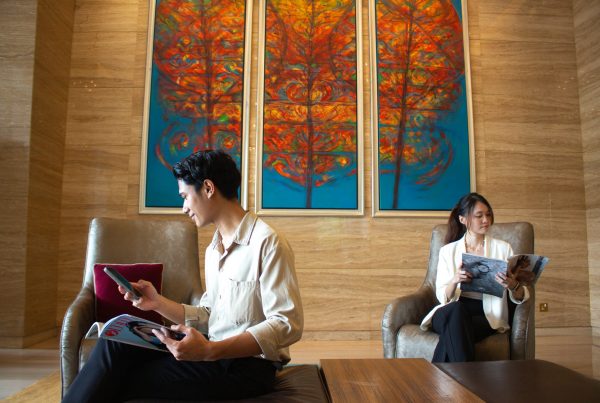For those of us in far remote parts of the world, the Ukrainian war has played out in a way where uncertainties are felt in the form of heightened market risks and rising energy prices. We didn’t see the war, but we have friends who tell us first-hand accounts of it. For me, it has been stories of friends who bought a car overnight to flee the country. One cannot help but think of what one’s responsibility is in the midst of this war and do right, whether it be from near or far.
The Parable Of The Crows
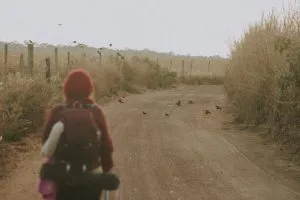
On weekends, I would plan for the following week with a walk to the nearby grocery store, on foot. I love the time to myself, the walk on the street, the crossing of the road on a zebra crossing, and taking a stroll to buy a limited amount of essentials for the week. It’s an exercise of restraining and responsibility, in a way where our ancestors used to, walking to the market with baskets or bags, some of them perched on their heads, and taking the time to set things up for the rest of the week, bumping into people, seeing the world around, and getting ready to interact in the markets as a way of observing commerce with our own eyes.
On one of these days, with the war on my mind, I observed a group of crows on the path where I was walking. I stood there for a while, seeing their actions, and it dawned upon me they are not too much different from us humans. I noticed that the crows were surrounding a piece of meat, pecking at it and trying to snatch the meat from each other. The largest of the crows was most successful, flying and landing nearby and puling at the largest piece. They each fought their fair fight, pecking, pulling, and flying away as best they could, returning yet again to fight for the rest. I stood there for a long time looking at them. I realized at that moment, that if I wanted to be the crow winner, I could approach them and take that piece of meat for myself. I would emerge victorious in this war. Due to my dominant position as an advantaged human being, it would have been so easy. I could be the King of the Crows.
The problem is, I have no desire to be King of the Crows. Instead, I am happy in my position as a human, on my way to the grocery store, to buy my piece of meat. I wished the crows could see what I can see, that perhaps, if they were to give up on the piece of meat, they could, instead transcend into a position of privilege.
What I wish we could all see, that Russia and its leaders could see, that all of our leaders could see, is the boundless blessings that await us, if only we were just to pause and fight the internal war with ourselves to dominate over each other. The war is not outside of us. It is inside. The meat could be large. A country, dominance, influence, money, power, the ability to safeguard our interest to help others even – these are very big motivators to fight. Oftentimes, it feels as if we were justified, almost called upon, to go for the meat, and be entirely in the war to win our fair share. After all, crows need to eat too. However, if we can take from others to feed ourselves and the people we want to provide for, with the worldview of a crow, what would the true value of our prize be?
We Need To Lead Our Leaders
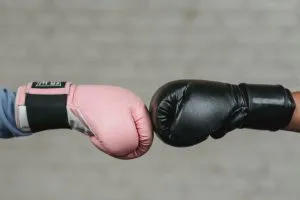
My father used to tell me, “In all interactions, if you win, you would have already lost.”
Although we are all helpless in the situation of war, we are not. We look at the leaders of the world, and we need to remind them that they are not crows. We need to be their leader, we need to inspire them to be better leaders. Leaders need leaders too. And who is their leader? Ourselves, their constituents. We are the ultimate leaders. We need to lead them to the right view. In a way that they can understand.
We have to tell them that it is not about Ukraine, Russia, China or the United States. It is the internal fear that if they do not get that piece of meat, they will starve.
And so, as personal leaders, we must exude to them that they won’t. We must show them that leadership is having the confidence to do the right thing, and knowing that results will follow. We must all, therefore, do the right thing ourselves and have the confidence that it will propagate and carry on to inspire them to do the right thing. Whatever you do today, make a wish to do something good, in the name of creating a ripple effect. After all, that’s what culture building is. Setting an example and inspiring others until they too, take on our ways.
Living in a country like Malaysia, I have first-hand experience with this. Our people have been resilient, and whatever happens over the years, you see the ongoing economic trade continuing, people keep working hard for an honest living, and they have not given in. I remember vividly an incident that showed the Malaysian spirit to me so apparent. I have no doubt the good people of Malaysia will be protected by their virtues. In my heart, the people of Malaysia are leaders in their own right.
A Better Way To Build: Partnership Instead Of Ownership

Oftentimes leaders overlook the power of partnerships in creating value. Politicians fight over spoils, hoping that they will win and their needs would be taken care of for a short period. But the future cost is that of a breakdown of collaboration between parties that would come together to create a stream of things available for consumption for a long period. If we fight and we break the trust amongst people that can be our co-creators, the cost to future posterity is often huge.
Humans have, for centuries, come together to make things; grocery stores and the supply chain of food is one, and through the good work of people working together in the past and present, blessings like groceries are easily available to us. But to build a supply chain is a tough journey, not just by one person or supplier, but by an entire global supply chain powered by the farmers to the traders, transportation, warehousing, shipping, wholesaling, retailing, financing to get one item to our doors. Better to fight for the spoils today, than to go through the hard work of building an entire system of the supply chain, right? Yes, in the short run. But if that is true, wouldn’t the crows live much better lives than humans?
Partnerships and Collaborators: A Sustainable Shortcut

If we were to build, is there a way we can do it with as little strive, effort and hardship as possible? As my co-founder, Andrew Yeow puts it, partnership is a very powerful way of working. Instead of rebuilding our capabilities, we leverage off of each other to create goods and services much more easily than if we were to “go at it” ourselves.
We see this so often in the world of startups. When people have nothing, they come together to help each other, and the value they create is huge, oftentimes out of nothing, and with as little cost as possible. The startup community at WORQ is a good testimonial for it. We witness tremendous growth in our members who actively leverage on the strength of each other. One of the examples is Appleseed, which has grown from a home-based team to an award-winning web designing company. In return, they have also helped other members by sharing their experiences and expertise. This process of leveraging and sharing has transformed their business entirely.
We must not give up hope that our actions, big and small, will ripple on and attract more and more collaborators. If we co-create and build more out of working together, I have no doubt that our methods will slowly instil in people to give up what’s in front of them, become leaders and roll up their sleeves to create greater common prosperity. Of course, it takes hard work, but to all the people feeling like it takes too much work to build, what is the alternative? To continue to fight for pieces of meat that will dwindle anyway?
Making A Difference
“The journey of a thousand miles begins with a single step.”
~Lao Tzu
The only way is to roll up our sleeves and know that hard work when done without striving, can be rewarding and fulfilling, and we can minimize the hard work with an easy way of working.
We can lessen the hard work by knowing there is a better way to get work done without striving and in a more rewarding and fulfilling way; contributing what we already know and accepting the help of others that have a store of skillset that they readily have. In this way, we do not have to be afraid of work. We just have to be afraid of not having enough people to collaborate with along the way. And the best way to assuage that fear is to not fight with others. One cannot possibly get collaborators if we fight or go to war with them.
Therefore, to all the world leaders and country representatives, there is no way you can starve in this world where many people have come together to build an economy, where it becomes so easy if we were all just to contribute and work together, to simply build and procure what we need, instead of fight for it. We hope you will take a page out of the way startups build themselves; that is, a culture of prospering by working together.


